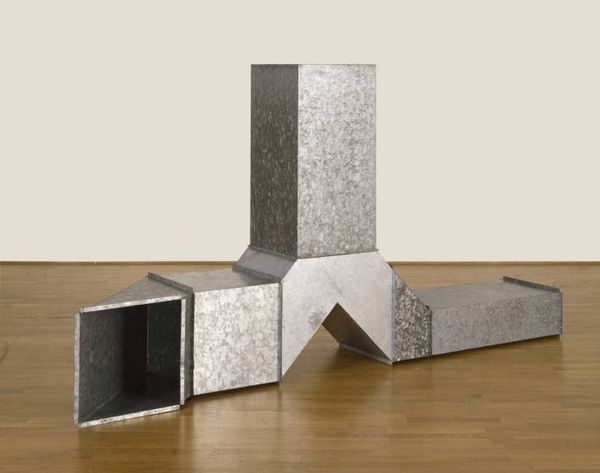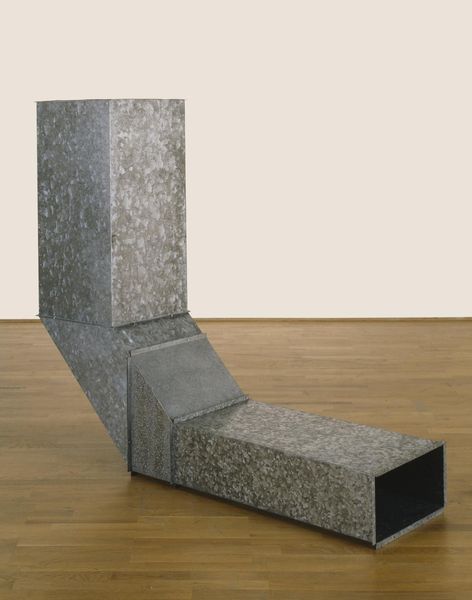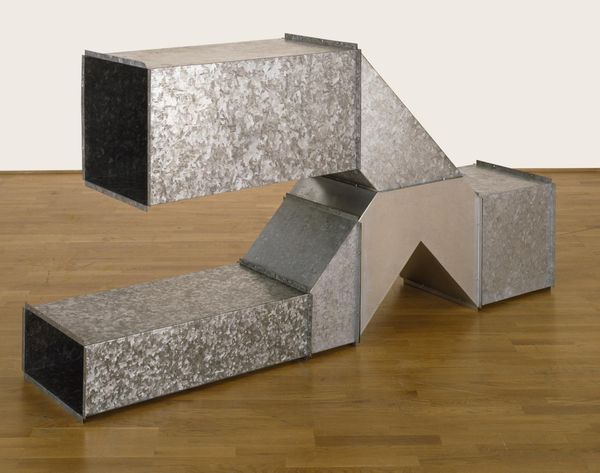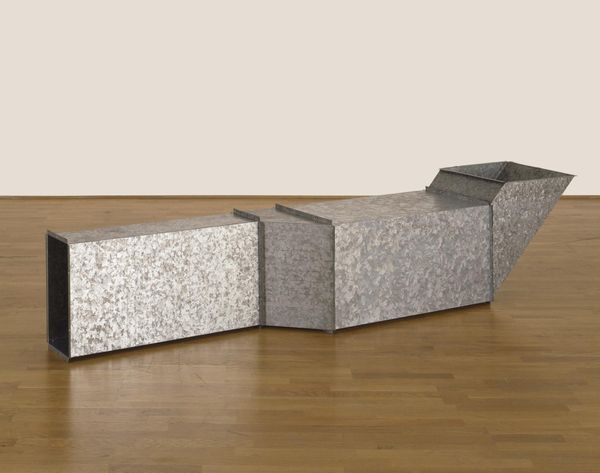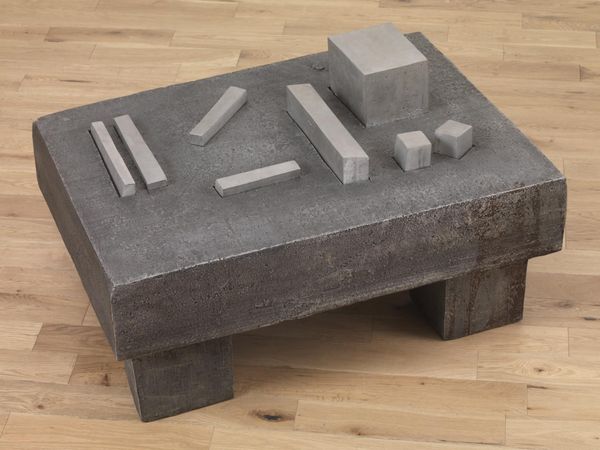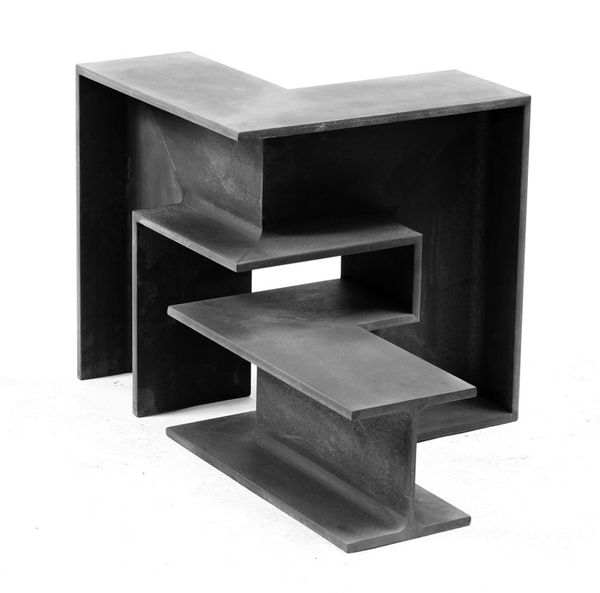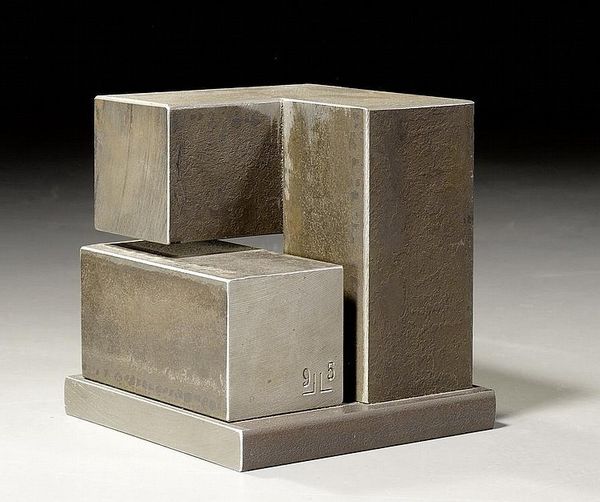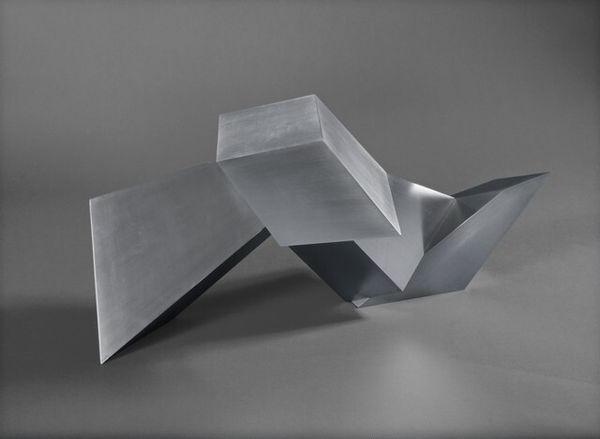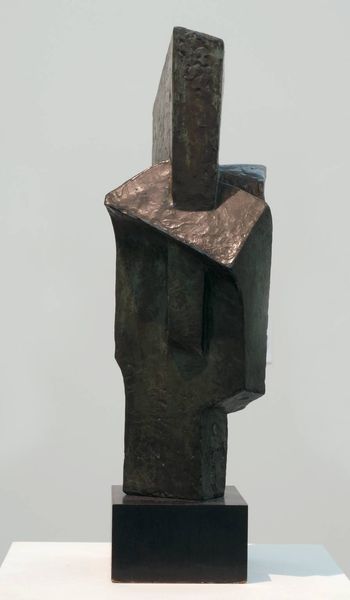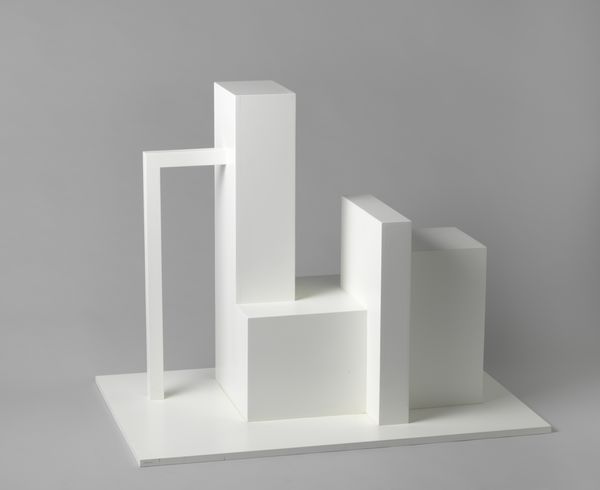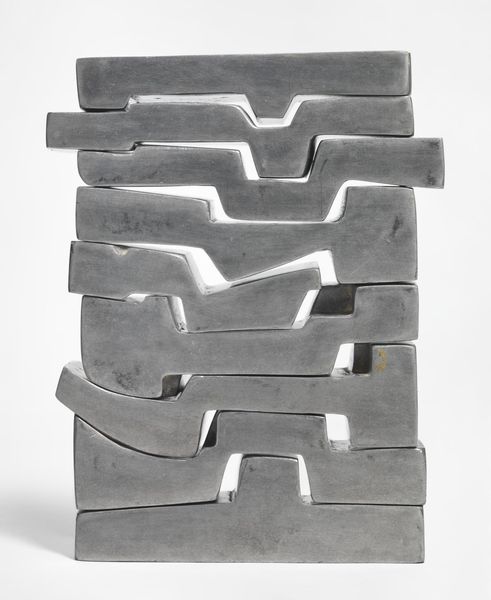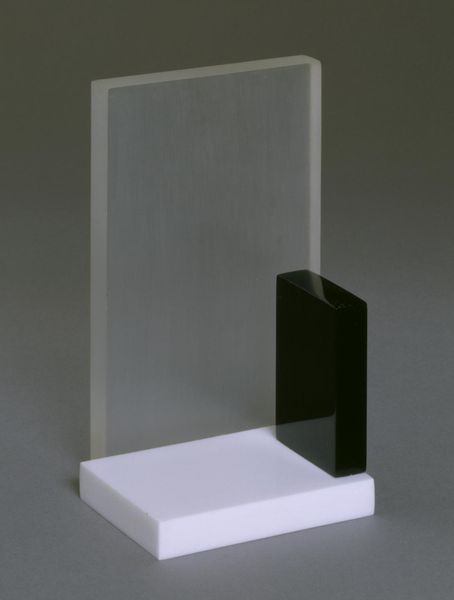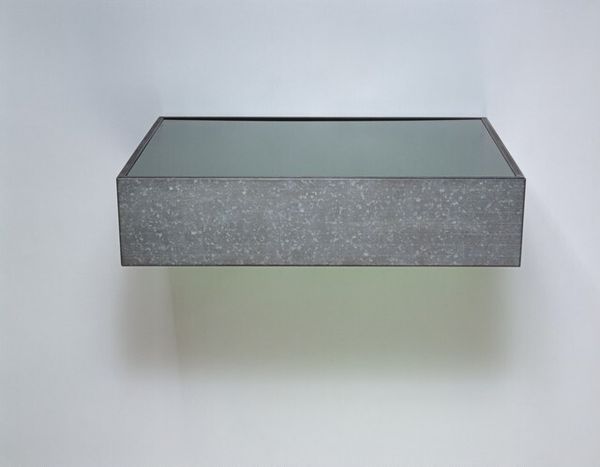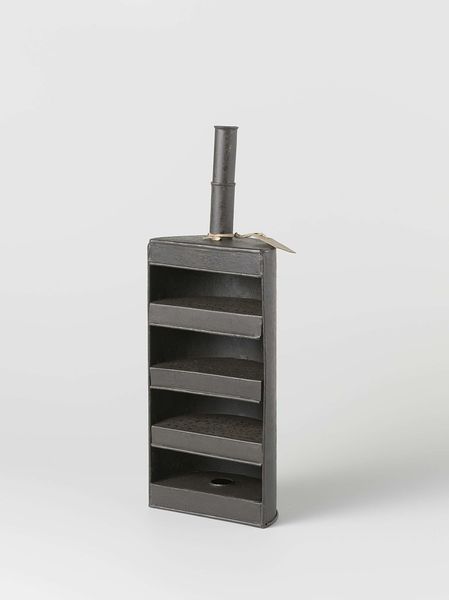![Square Tubes [Series D] by Charlotte Posenenske](/_next/image?url=https%3A%2F%2Fd2w8kbdekdi1gv.cloudfront.net%2FeyJidWNrZXQiOiAiYXJ0ZXJhLWltYWdlcy1idWNrZXQiLCAia2V5IjogImFydHdvcmtzL2ZmODMzNjRjLTZkNWItNDY2Mi1iNzFlLWQ5MjQxYzM0ZjA3Yi9mZjgzMzY0Yy02ZDViLTQ2NjItYjcxZS1kOTI0MWMzNGYwN2JfZnVsbC5qcGciLCAiZWRpdHMiOiB7InJlc2l6ZSI6IHsid2lkdGgiOiAxOTIwLCAiaGVpZ2h0IjogMTkyMCwgImZpdCI6ICJpbnNpZGUifX19&w=3840&q=75)
Dimensions: Six elements: square tube: 460 x 460 x 920 mm; rectangular tube: 230 x 460 x 920 mm; cubic tube, 460 x 460 x 460 mm; angular element, opening: 460 x 460 mm; transition element, openings: 460 x 460 and T-piece, openings: 460 x 460 mm Overall display
Copyright: © Estate of Charlotte Posenenske/Burkhard Brunn, Frankfurt/M. | CC-BY-NC-ND 4.0 DEED, Photo: Tate
Editor: This is Charlotte Posenenske's "Square Tubes [Series D]," a sculpture of galvanized steel, comprised of interlocking sections. It looks like industrial ductwork escaped from a factory. What should we make of it? Curator: Well, it's interesting, isn't it? Mass-produced, and coldly functional, yet it disrupts our ideas of art. Posenenske abandoned art soon after, feeling it couldn't effect real change. Does that influence how you see it? Editor: It does. Knowing she felt art was ineffectual adds a layer of irony to something so rigid and, well, useless in this context. Curator: Exactly! It's a fascinating tension. Perhaps it's not about what it *is*, but what it *provokes*. Something for us to consider. Editor: Definitely food for thought. I see the piece a bit differently now.
Comments
tate 9 months ago
⋮
http://www.tate.org.uk/art/artworks/posenenske-square-tubes-series-d-t12772
Join the conversation
Join millions of artists and users on Artera today and experience the ultimate creative platform.
tate 9 months ago
⋮
Posenenske was interested in industrial methods of production, and produced free standing sculptures which often resemble standardised architectural units. Square Tubes Series D, consists of a number of folded, hollow elements which are joined together to create different shaped pieces, according to the owner’s decision. The tubes can be hung or placed on the floor in numerous configurations, and the physical organisation of the elements can be altered each time they are exhibited Gallery label, October 2016
